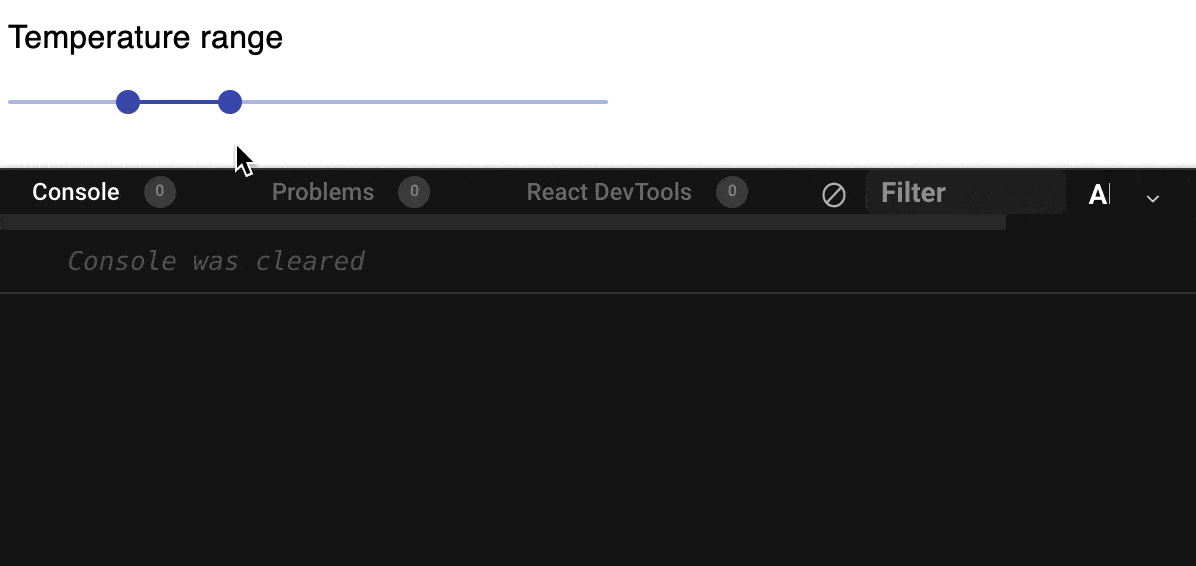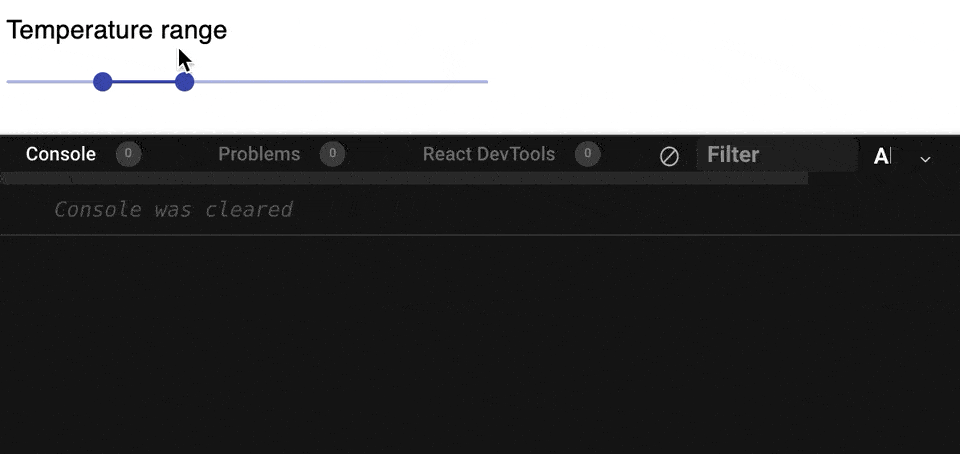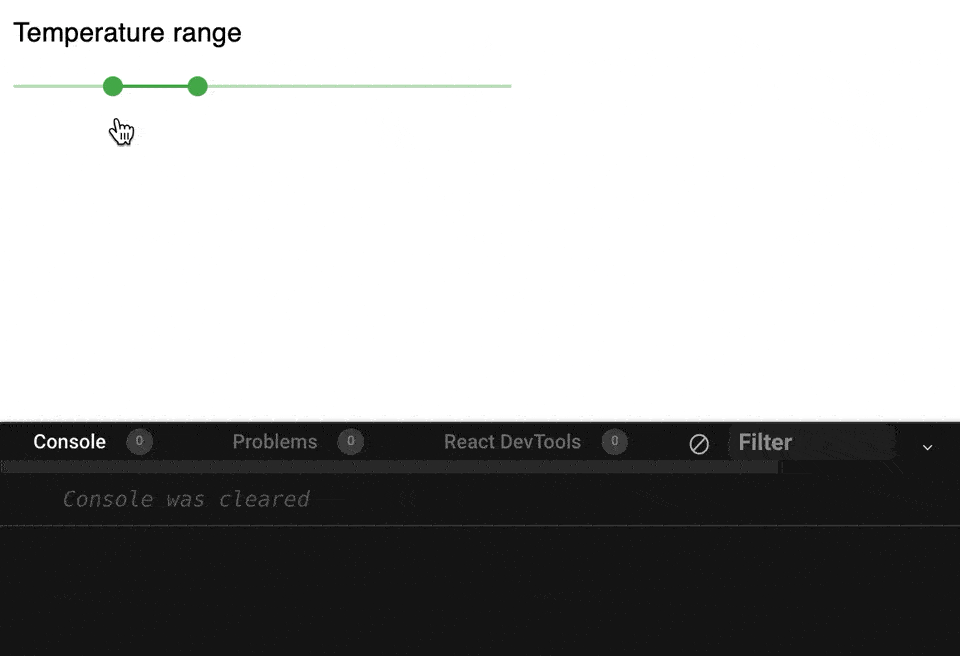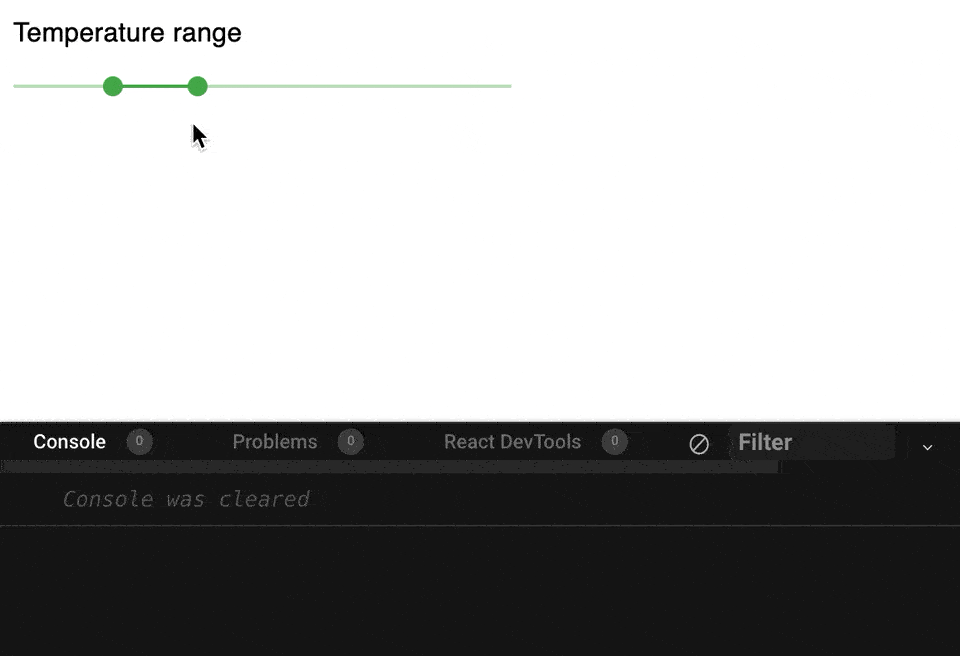Hello! My name is Igor Shamaev, I am the chief development engineer in the SmartData team. I am engaged in full-stack development of an internal analytical BI system. In our company, React is accepted as the main standard for building user interfaces. Like most of the React community, we use hooks extensively in our daily work.
Continuous learning is an integral part of any good developer's job. Therefore, today I would like to make my humble contribution to this process and present a small guide for those who are starting to actively learn React and working with hooks. And along the way, give you a small and useful tool for working with the new React standard.
In the translation of the article Debouncing with React Hooks, we learned how, without third-party libraries, using only the capabilities of React, you can create a hook in several lines of code to work with lazy changes in variable values. Now I propose to consider another useful hook that will help us defer a function call. If the function will be called many times in a row, then the actual call will only occur after the delay interval we set. That is, only for the last call in the series. The solution is also very compact and easy to implement in React. If you are interested, please, under cat.

React . . , React , .
import { useRef, useEffect } from "react";
export default function useDebouncedFunction(func, delay, cleanUp = false) {
const timeoutRef = useRef();
function clearTimer() {
if (timeoutRef.current) {
clearTimeout(timeoutRef.current);
timeoutRef.current = undefined;
}
}
useEffect(() => (cleanUp ? clearTimer : undefined), [cleanUp]);
return (...args) => {
clearTimer();
timeoutRef.current = setTimeout(() => func(...args), delay);
};
}, - , . , . Material-UI.
import React from "react";
import { makeStyles, Typography, Slider } from "@material-ui/core";
import useDebouncedFunction from "./useDebouncedFunction";
import apiRequest from "./apiRequest";
const useStyles = makeStyles({
root: {
width: 300
}
});
function valuetext(value) {
return `${value}°C`;
}
export default function RangeSlider() {
const classes = useStyles();
const [value, setValue] = React.useState([20, 37]);
const handleChange = (event, newValue) => {
setValue(newValue);
};
return (
<div className={classes.root}>
<Typography id="range-slider" gutterBottom>
Temperature range
</Typography>
<Slider
value={value}
onChange={handleChange}
valueLabelDisplay="auto"
aria-labelledby="range-slider"
getAriaValueText={valuetext}
/>
</div>
);
}
, - , . , . , - , . , , console.log():
export default function valueLogging(value) {
console.log(`Request processed. Value: ${value}`);
} handleChange() valueLogging() , :
const handleChange = (event, newValue) => {
setValue(newValue);
valueLogging(newValue);
};
… , . valueLogging() . . . ?
1. useDebounce value .
useDebounce debouncedValue, . useEffect valueLogging(). - :
export default function RangeSlider() {
const classes = useStyles();
const [value, setValue] = React.useState([20, 37]);
const [changedByUser, setChangedByUser] = React.useState(false);
const debouncedValue = useDebounce(value, 300);
useEffect(() => {
if (changedByUser) {
valueLogging(debouncedValue);
}
}, [debouncedValue]);
const handleChange = (event, newValue) => {
setValue(newValue);
if (!changedByUser) {
setChangedByUser(true);
}
};
return (
<div className={classes.root}>
<Typography id="range-slider" gutterBottom>
Temperature range
</Typography>
<Slider
value={value}
onChange={handleChange}
valueLabelDisplay="auto"
aria-labelledby="range-slider"
getAriaValueText={valuetext}
/>
</div>
);
}, , ? , useEffect, , valueLogging() . , . , useEffect , valueLogging(). , React useEffect changedByUser. , .
?
2. valueLogging() handleChange().
, :
export default function RangeSlider() {
const classes = useStyles();
const [value, setValue] = React.useState([20, 37]);
const debouncedValueLogging = useDebouncedFunction(valueLogging, 300);
const handleChange = (event, newValue) => {
setValue(newValue);
debouncedValueLogging(newValue);
};
return (
<div className={classes.root}>
<Typography id="range-slider" gutterBottom>
Temperature range
</Typography>
<Slider
value={value}
onChange={handleChange}
valueLabelDisplay="auto"
aria-labelledby="range-slider"
getAriaValueText={valuetext}
/>
</div>
);
} useDebouncedFunction, .
React:
import { useRef } from "react";
export default function useDebouncedFunction(func, delay) {
const ref = useRef(null);
return (...args) => {
clearTimeout(ref.current);
ref.current = setTimeout(() => func(...args), delay);
};
} , . , . -, useRef ( useRef). : , React. -, . current .
, useRef, , DOM-. , . . setTimeout() . timeoutId, setTimeout(), ref.current. , useDebouncedFunction. timeoutId clearTimeout(). , . , valueLogging() 300 . .
let timeoutId; :
export default function useDebouncedFunction(func, delay) {
let timeoutId;
return (...args) => {
clearTimeout(timeoutId);
timeoutId = setTimeout(() => func(...args), delay);
};
}React. React . , , :

- , debouncedValueLogging() timeoutId. .
, :

! . , .
, . , - . . , , ?
, - . , , .
.
-, , value . , , RangeSlider .
import React, { useState } from "react";
import { ThemeProvider, createMuiTheme, Typography } from "@material-ui/core";
import RangeSlider from "./RangeSlider";
const theme = createMuiTheme({});
export default function App() {
const [sliderShown, setSliderShown] = useState(true);
//
function handleValueChange(value) {
if (value[1] === 100) {
setSliderShown(false);
}
}
return (
<ThemeProvider theme={theme}>
{sliderShown ? (
<RangeSlider onValueChange={handleValueChange} />
) : (
<Typography variant="h2">Too hot!</Typography>
)}
</ThemeProvider>
);
}-, RangeSlider , , , . , - , , , . .
import React from "react";
import { makeStyles, Typography, Slider } from "@material-ui/core";
import useDebouncedFunction from "./useDebouncedFunction";
import valueLogging from "./valueLogging";
import checkIfOptimal from "./checkIfOptimal";
const useStyles = makeStyles({
root: {
width: 300
}
});
function valuetext(value) {
return `${value}°C`;
}
export default function RangeSlider(props) {
const classes = useStyles();
const [value, setValue] = React.useState([20, 37]);
const [isOptimal, setIsOptimal] = React.useState(true);
//
const debouncedValueLogging = useDebouncedFunction(
newValue => valueLogging(newValue),
300
);
//
const debouncedValueCheck = useDebouncedFunction(
newValue => checkIfOptimal(newValue, setIsOptimal),
300
);
const handleChange = async (event, newValue) => {
setValue(newValue);
debouncedValueLogging(newValue);
debouncedValueCheck(newValue);
if (props.onValueChange) {
props.onValueChange(newValue);
}
};
return (
<div className={classes.root}>
<Typography id="range-slider" gutterBottom>
Temperature range
</Typography>
<Slider
value={value}
onChange={handleChange}
valueLabelDisplay="auto"
aria-labelledby="range-slider"
getAriaValueText={valuetext}
style={{ color: isOptimal ? "#4caf50" : "#f44336" }}
/>
</div>
);
}-, checkIfOptimal():
//
export default function checkIfOptimal(newValue, setIsOptimal) {
return setIsOptimal(10 < newValue[0] && newValue[1] < 80);
}, :

, , checkIfOptimal().

, React :
Warning: Can't perform a React state update on an unmounted component. This is a no-op, but it indicates a memory leak in your application. To fix, cancel all subscriptions and asynchronous tasks in a useEffect cleanup function.
in RangeSlider (at App.js:20)
? , true/false . setIsOptimal(). , 300 . . React. . ?
useDebouncedFunction: cleanUp. true, .
import { useRef, useEffect } from "react";
export default function useDebouncedFunction(func, delay, cleanUp = false) {
const timeoutRef = useRef();
//
function clearTimer() {
if (timeoutRef.current) {
clearTimeout(timeoutRef.current);
timeoutRef.current = undefined;
}
}
// , cleanUp true
//
useEffect(() => (cleanUp ? clearTimer : undefined), [cleanUp]);
return (...args) => {
clearTimer();
timeoutRef.current = setTimeout(() => func(...args), delay);
};
}useEffect, .clearTimer().
.
//
const debouncedValueCheck = useDebouncedFunction(
newValue => checkIfOptimal(newValue, setIsOptimal),
300,
true
);.

, . , .
?
, . checkIfOptimal() — , . checkIfOptimal() , , , .
? useDebouncedFunction , , , .
, .
. , .
, , codesandbox. :